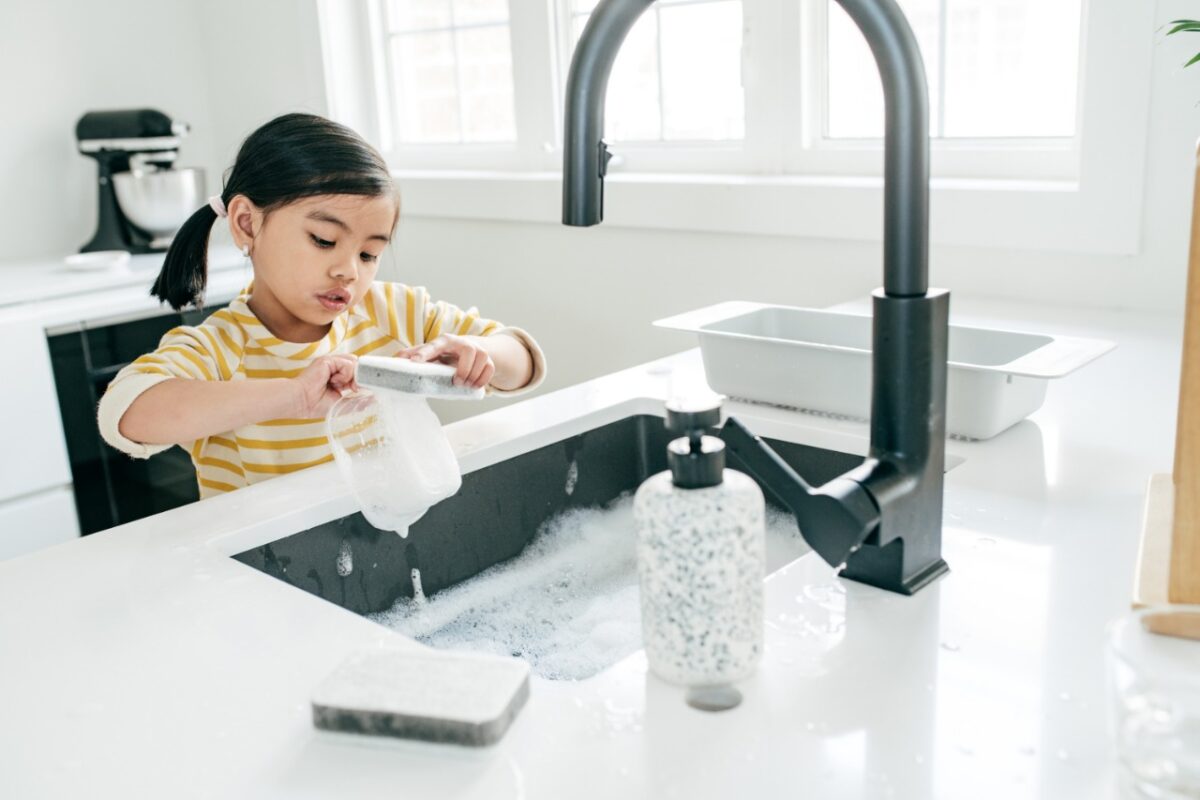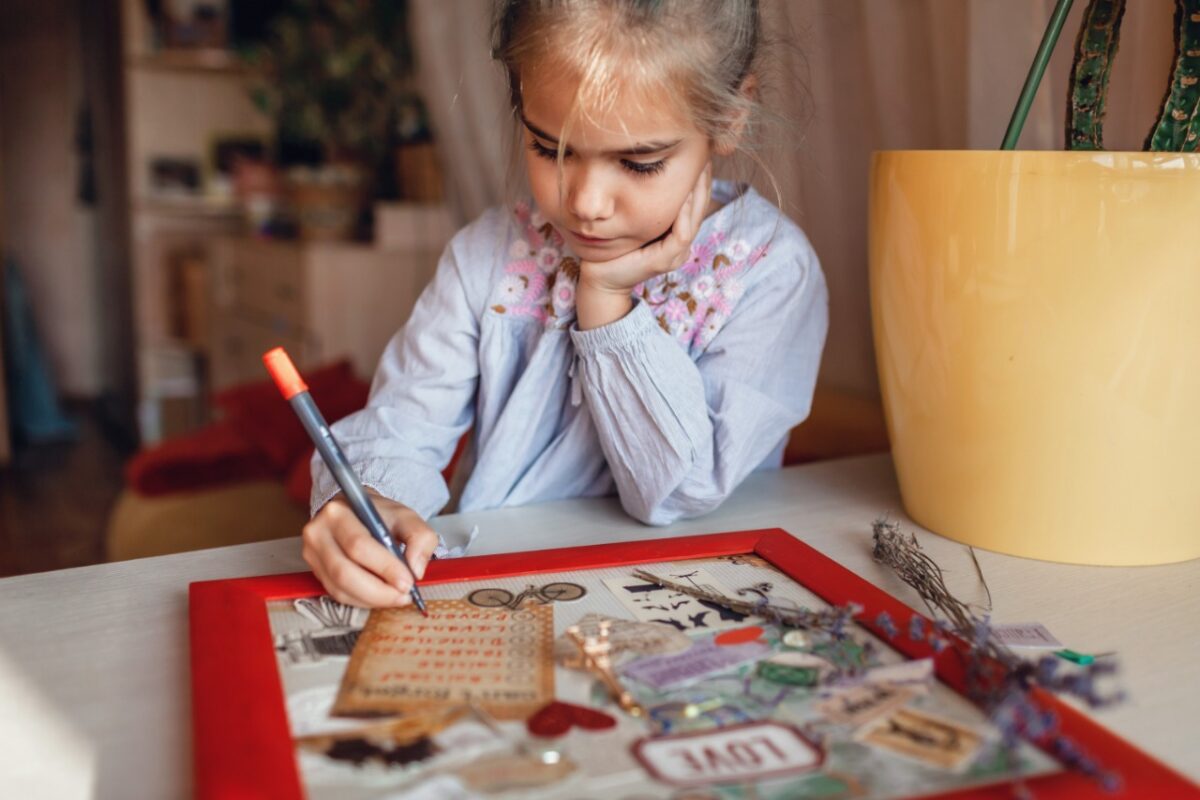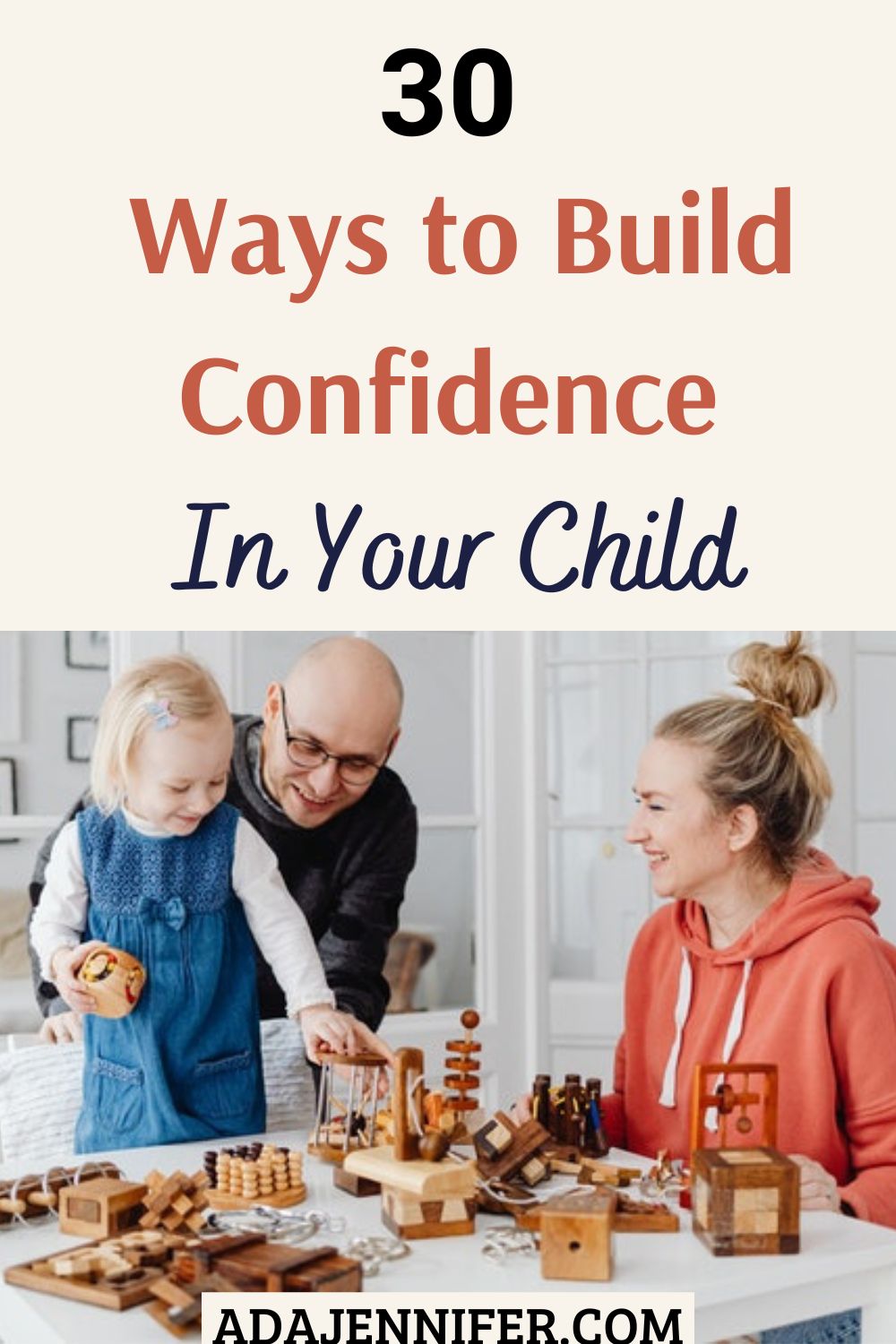How To Build Confidence In A Child- 30 Tips For Parents

If you’re a parent reading this article right now and want to know how to build confidence in your child, chances are you’re worried about your child and his/her sense of confidence.
Like many other social skills, confidence is essential; it’s vital for your child’s good physical and emotional development. The way children carry themselves and whether they’re confident in their skin can indicate their future success and happiness.
According to research, the first few years of a child’s life are most important in building confidence and self-esteem. Studies show that by the age of 5, most children reach their prime aspect of personality and self-esteem.
However, if your child is yet to build his confidence, there are numerous ways to manifest self-assurance and confidence in their personality. Parenting plays a significant role in a child’s confidence, and hence, parents must know the impact of their words and actions on their child’s future.
Before we move on to giving out tips on how to build confidence in a child, let’s first look at what confidence is and why it’s necessary for our lives.

What is confidence, and why is it important?
Confidence can be defined as “the feeling or belief that one can have faith in or rely on someone or something.” Similarly, self-confidence is the belief that one can rely on themselves and trust their instincts.
Self-confidence can also be viewed as the assertiveness one holds in their skills and abilities. Self-confident children will trust themselves and have better control over their actions and thoughts.
How to Build Confidence In a Child
Here’s a list of 30 tips to raising a more confident child that are a perfect guide for parents who want to know how to build confidence in a child.
1. Show love and make it unconditional
Showing love to your child is probably the best thing you can do to help your child feel confident in themselves. When a child knows they’re loved, it becomes easier for them to love themselves and reciprocate self-assurance.
If you show faith in your child’s abilities, they will respond similarly. Parents are the first teacher in their child’s life— you kids learn from your actions and words. So, ensure that they are appreciated and well-noticed.
- Don’t just celebrate their victories, but be there to appreciate them for every effort they put forward.
- Love them irrespective of their actions— don’t condition your affection to their success. It will mislead their future happiness solely on success and acknowledgment.
Children look up to their parents for validation— so provide them with the love and affection they need, be there for them.
For example, don’t idealize toxic behavior where “you only love your child after they’ve done something to make you happy.” Instead, make it a point to love them even after they’ve made mistakes.
2. Give compliments and praise your child.
Give compliments and praises to your child; this will help boost their confidence. Make them feel valued and appreciated. Even if your child fails to do something, make it a point to encourage them irrespectively! Recognize their efforts and say things like, “I know it was a tough competition, I’m so proud of you for trying and putting so much effort.”
3. Model confidence
Children look up to their parents and behave in ways that their parents do. They tend to imitate actions and behaviors because that’s their favorite hobby to continue for days and months.
Children love to walk like you, talk like you, and grow up like you. So, introduce them to the best of everything in your actions.
When you reflect confidence in the way you behave, your child will imitate every action that follows, which will positively boost their confidence. It is essential to be careful of how you act and what you speak around your child as a parent.
However, make sure to teach and reflect on the difference between self-confidence and self-conceit. If unaltered, self-confidence can easily distort itself as self-conceit.
- Teach confidence with added modesty.
- The importance of self-reflection.
- Responsibility of actions and words.
- Empathy
- Selflessness
4. Buy books that will help them feel confident.
Books are some of the best ways to build a child’s confidence. If your child likes reading, buy them books that will impact their self-esteem. Several textbooks have addressed this very purpose. Some of which are:
- Remarkably You
- The Me I Choose To Be
- Dear Girl
- Giraffe Problems
- Not Quite Snow White
- I Am Enough
5. Encourage hobbies and passions.
You may notice that there are certain activities your child loves to engage in— these hobbies/passions could be playing a sport, sketching, or even reading, for that matter.
Support anything that your child seems to enjoy. Don’t just support them for a bright future; support their hobbies because they make your kids happy. Happy kids practice self-love and naturally boost an optimistic and self-confident personality.
Passionate practicing will help your child get better in their hobbies, and in turn, it will boost their confidence! Who knows, your child could be the next Christiano Ronaldo or even the next Picasso!
6. Promote Healthy Competition

Teach your child the difference between healthy and unhealthy competition.
Healthy competition stems from a positive state of mind. For instance, a child might want to compete to learn more from better competitors. Healthy competition promotes sportsmanship— where your child accepts the mistakes that made him lose.
Sportsmanship also helps your kids celebrate others’ success. In healthy competition, one doesn’t fear failure; they simply enjoy and learn from the competition.
On the other hand, unhealthy competition arises from fear, failure, envy, jealousy, and scarcity. For example, another child participating in the same race may want to win because they do not want someone else to achieve more.
Healthy competition promotes positive relationships and confidence in one’s abilities; unhealthy competition does the opposite.
7. Healthy Lifestyle
A healthy lifestyle can significantly affect the way children view themselves. If your kids feels healthy from the inside, they are more likely to feel confident in themselves.
A child with highly unhealthy eating habits may feel weak all the time, leading to inferiority and low self-esteem.
8. Remind them to be kind
Teach your kids the values of kindness and helpfulness. Ask them to volunteer at NGOs or give a hand to a friend on a project.
Feeling like they’ve helped someone will help your kid feel valuable and productive.
9. Encourage bravery
As a parent, it is your responsibility to help your child face their fears. Facing their fears will make the child brave and confident in taking up new challenges whenever necessary.
A brave child will also develop the confidence to take up new opportunities with vigor and enthusiasm. Be careful to make the process of desensitizing your child to their fear slowly. Don’t rush your child into facing their fears; let them follow their own pace.
10. Hand out responsibilities

Don’t hesitate to let your child take up their responsibilities. Make sure you teach them independence. When your child learns how to do things independently, they will gain confidence with time.
Wherever necessary, you may lend a helping hand, but don’t let your child be utterly dependent on you for everything.
For example, you can help kids out when stuck in a math equation or science question. Guide them through, but don’t do it for them. In this way, your child will learn to deal with problems independently and handle situations by themselves.
11. Don’t Compare
“Comparison is a thief of joy.”
Please don’t compare your child to your friend’s child, peers, cousins, or anyone else. Just don’t!
While you may think this is good for them and will provide motivation, it can do the total opposite. Your child may become disheartened if they’re not encouraged to be who they are, and this will affect their self-confidence.
Your children have their own unique personalities, don’t force them to be someone else or compete with someone else’s success.
12. Teach them the value of sharing
If your child is old, you can share your struggles with them.
- Sharing your struggles is a way of telling the child that they’re not alone.
- And that you will always be here to help if they ever need you.
- It also teaches them that they can rely on you for support and will thus gain confidence in their actions and behaviors.
13. Understand their perspective
Talk to your child and understand where they are coming from. Also, keep the lines of communication between you and your child open for them to rely on.
Once you understand how your child feels and thinks, it will be easier for you to help them gain confidence.
14. Ask
Let your child know that they have the freedom to express and talk about their opinions.
A simple “What do you think about this” when you’re picking a pair of shoes or some clothes for yourself can go a long way in letting your child know that their opinion is valued and heard.
15. Give space and privacy.
Whenever your child says they need space, let them have it. Contrary to popular belief, it doesn’t make you a bad parent; it makes you a good one because it helps them clear their head in stress or frustration and deal with situations better.
16. Let them make their own decisions.
As controversial as this may sound, you should let your kids make certain decisions for themselves. These don’t necessarily have to be big, like choosing a school at a young age, but you can always let them make small decisions like what they want to wear or eat occasionally.
Providing a sense of individuality is beneficial to a child’s self-image.
17. Don’t come to the rescue always.
If your child seems to get into trouble a lot of times, don’t try to rescue them and give solutions to their problems all the time.
If you keep doing this, they might grow resentful and start thinking of you as a controlling parent; we all know you wouldn’t want that!
If the situation is not too difficult, have faith in your child’s problem-solving ability and let them handle their problems.
18. Assign tasks according to their ability
In the spirit of building your child’s confidence, don’t assign them tasks that can get difficult for them to handle.
Curiosity will make your child try many new things out. However, too much work/pressure may overwhelm them into exhaustion. Unfinished work can also make your child feel that they are not ‘good enough.
At times like these,
- Help your child to finish the task at hand.
- Let them know how proud you are of them for trying.
- Teach them the correct procedure.
- If they don’t understand— make sure they don’t feel bad about it.
19. Treat them with respect.
No matter how old your child is, respect your child. Treat them how you would treat anyone else that you admire. When you respect your kids, you’re showing them how to respect themselves. A child who’s respected in life will learn to respect others as well!
20. Work through your issues first.
To be a role model for your child, you must work through your dilemmas first. See a therapist and work through your problems, find your strengths and weaknesses, and cope with problems better.
Managing your problems will help you teach your child ‘how to manage their own problems efficiently.
21. Acknowledge their negative emotions
When your child feels angry, frustrated, or disappointed, don’t disregard their feelings and leave them unsolved. Instead, help them acknowledge how they feel and work through these emotions.
It’s only natural for kids to have emotional breakdowns. They are not mature enough to deal with their raging emotions, so be there for them and listen to every rant that follows.
Please don’t leave your child to deal with their own emotions; they are relatively new to the world and wouldn’t know how to sober their thoughts exactly.
- Teach them not to bottle up their negative feelings.
- If they are angry, listen to them, understand the cause, and develop solutions.
- Teach them forgiveness.
- Sometimes, you just need to rant with them.
22. Help them not fixate on themselves
Children that have issues with self-confidence often end up fixating on themselves and their problems. The constant over-thinking might make them feel lonely in their struggles and even develop anxiety.
They might be so fixated on the negatives that they may completely disregard the positive side of things. It can often get difficult for such children to develop a sense of gratitude.
23. Do fun things with them

Team up with them and work in coordination. Do fun activities with them. Go out often and do simple tasks such as making breakfast or preparing their backpacks for school.
If your child is too young, help them engage in simple activities and do those with them.
24. Help them engage in positive self-talk and speak affirmations.
Practice positive self-talk and affirmations with your child. Ask them to be kind to themselves first. Ban all demoting language such as the use of “I can’t do that” or “I’m not enough.”
Instead of this, you can teach your child positive ways to talk to themselves. For example, “I am enough, I can do this,” “I am beautiful no matter what others may think.” “Success doesn’t define my happiness.” “live, and let live” “enjoy life as it is.”
Affirmation and providing reassurance are essential steps in raising a confident child.
25. Address them as an individual
Address your child with their name; this will give them a sense of identity.
26. Set realistic, attainable goals

Too hard goals will drain your child out without any mental development. It’s best to set realistic goals that match your child’s abilities.
Ungodly expectations and goals will bring no good to your child’s mental and physical health.
You can also use methods such as making a goal sheet. However, don’t decide your child’s goals for them. No, let them make their own goal sheet, and it will help your child and yourself realize their genuine interest and inspiration.
Your kids can change those goals anytime in life, but make sure they try to finish what they started. Leaving unfinished work will teach your kids deviation. If your child doesn’t want to continue any specific goal, make it fun for them and join hands. However, don’t force it if your child finds it draining.
Celebrate small steps
Most parents will celebrate high grades, trophies, and success. As for me, everything that my daughter does is quite brilliant, and I applaud her walk, talk, extra bits, sloppy dance moves, and simply everything about her. Independent happiness will teach your kids the value of little things.
Constant phrases on their existence will make them confident in their skin and personality.
No matter how small a victory is, celebrate it. It can do wonders for your child’s confidence and belief in their abilities.
27. Set aside time for undivided attention
If you’re a working parent, it may be difficult for you to attend to your child’s needs every minute of the day. In a case like this, what you can do is set aside a specific amount of time, say an hour or so, where you can give your child your undivided attention.
Doing this ensures your child knows that even if you’re busy, it does not mean you don’t love or value them. When they spend time with you, they will learn new things about themselves and you.
28. Praise your child in front of others.
When your child overhears you talking positively about them to other people, it will impact their self-confidence significantly.
The child will feel validated by you and know that you are proud of them at all times. However, be careful not to engage in overpraising as this can also prove very harmful in the long run.
29. Cultivate a sense of belonging
You can do this by hanging portraits of them in your house or their rooms. They will feel a sense of belonging when you do this.
You can also put their artwork for display or put pictures of your family in their room to see and know that they’re supported, loved, and appreciated for their efforts. It will give them encouragement and a boost of confidence.
30. Take a step-by-step approach.
It is essential to be patient when helping your child develop confidence. Take a step-by-step approach and don’t rush the process.
You may sum up the process as:
- Step 1: Model Confidence
- Step 2: Assign Tasks
- Step 3: Help them complete the assigned tasks, if necessary.
- Step 4: Celebrate their victories.
Reasons why self-confidence is essential in a child:

Why do parents have to learn how to build confidence in a child? What makes it so important? Here is why:
When children are confident in themselves, it can positively impact their social relationships and personal identity.
-
- They are better able to take a stand for themselves and be assertive.
- Are playful and fun-loving
- Can resist peer pressure well
- Learn positive ways to cope with the challenges of life
- Deal better with academic pressure
- Feel happy
- Maintain a positive view of themselves
- Can actively maintain healthy interpersonal relationships
According to research, confident people are more fun-loving and cope with the pressures of life in a more healthy manner.
Contrary to this, having low self-confidence will make a child doubt themselves and be passive in approaching tasks. They may also have difficulty trusting others and feel inferior to their peers. However, confidence can also depend on situations and not just the child.
For instance, a child may feel confident while talking to you or their peers, but the same child may not be as comfortable performing in front of an audience on stage. Children with low confidence can be susceptible to criticism and react negatively.
In Conclusion
Every parent should learn how to build confidence in a child because confidence can significantly impact a child’s life, even when they have grown into adults. Cultivating self-confidence in a child is one of the most precious gifts a parent can give to their kid.
Sometimes, parents may doubt where and how to start building confidence in their young children. Use this helpful guide to get better at parenting. Just know that building a child’s confidence is a learning curve where you cannot afford any mistakes.
Let your child know they are loved, valued, and appreciated for who they are, and teach them healthy ways to cope with the problems or challenges life might present to them.
Give your child exposure to new challenges and opportunities but make sure you have their back no matter what! Help them be happy, successful, confident adults and face life with courage and vigor.
Always let your child know that they are more vital than anything life throws at them and that they can handle it all!
Save This For Later!

